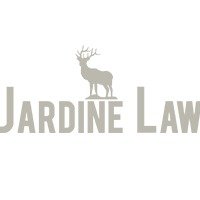Best Appeal Lawyers in Montana
Share your needs with us, get contacted by law firms.
Free. Takes 2 min.
Or refine your search by selecting a city:
List of the best lawyers in Montana, United States
About Appeal Law in Montana, United States
Appeal law in Montana allows individuals or entities to seek a higher court's review of a lower court's decision. An appeal is not a new trial but rather a legal process where a higher court examines the lower court's proceedings to ensure that the law was correctly applied and that procedural fairness was observed. Appeals can be made in both civil and criminal cases. Montana's appellate process is governed primarily by state statutes, court rules, and the Montana Constitution. The main appellate courts in Montana are the Montana Supreme Court and, in some administrative cases, specialized appellate bodies.
Why You May Need a Lawyer
An experienced appeals lawyer can be essential for those seeking to challenge or uphold a court decision in Montana. Legal counsel is especially important in the following situations:
- If you believe the court made a legal error during your trial or hearing
- If you are unsatisfied with the outcome of your civil or criminal case
- If your rights were violated during the legal process
- If you need to respond to an appeal filed by the opposing party
- If you are navigating complicated procedural requirements and tight filing deadlines
- If there is confusion about which issues are subject to appeal
- If technical or constitutional questions arise in your case
As appeals involve complex legal arguments, strict formatting, and procedural rules, a lawyer's expertise can significantly impact your chances of a successful appeal.
Local Laws Overview
Montana appellate law is primarily shaped by the Montana Code Annotated, the Montana Rules of Appellate Procedure, and decisions from the Montana Supreme Court. Here are some key aspects to understand:
- Most appeals in Montana go directly to the Montana Supreme Court, as the state does not have an intermediate Court of Appeals for general matters.
- Appeals must be filed within a specific timeframe, generally 30 days from the entry of judgment or order being appealed.
- Not all decisions are appealable. Generally, only final judgments and certain rulings qualify.
- The appellate court reviews the lower court record and legal arguments but does not accept new evidence or re-examine witness credibility.
- Appellate briefs are subject to strict formatting and content rules, and oral arguments may be granted at the court’s discretion.
- Administrative decisions may be appealed through distinct procedures specified by the agency involved.
Understanding these rules is critical, as failure to adhere to them can result in dismissal of your appeal.
Frequently Asked Questions
What is an appeal?
An appeal is a request for a higher court to review the decision of a lower court to determine if legal errors were made that affected the outcome.
How long do I have to file an appeal in Montana?
Generally, you have 30 days from the date the final judgment or order is entered. However, some cases may have different deadlines, so consult the specific rules or a lawyer promptly.
Can I introduce new evidence during my appeal?
No, appellate courts only review the existing record from the trial court. New evidence is generally not allowed.
What happens if I miss the filing deadline?
Missing an appeal deadline usually means losing the right to appeal. In rare circumstances, extensions may be granted if proper grounds are shown.
Does filing an appeal halt the enforcement of the original decision?
Filing an appeal does not automatically pause the enforcement of a judgment. You may need to request a stay of enforcement from the court.
What are briefs, and why are they important?
Briefs are written arguments submitted to the appellate court that explain the errors alleged and the law supporting your position. Properly prepared briefs are vital to a successful appeal.
If I lose my appeal, do I have further options?
If you lose in the Montana Supreme Court, your options are extremely limited. You may petition for reconsideration or pursue a federal appeal if federal constitutional issues are present.
Can any court ruling be appealed?
Only certain orders, generally final judgments, or specific types of interlocutory orders, are eligible for appeal.
Is an oral argument always granted in Montana appeals?
No, the Montana Supreme Court decides whether an oral argument would be helpful and may resolve many appeals based only on the written briefs.
How long does the appeal process take?
It varies, but most appeals in Montana take several months to over a year from filing to a decision, depending on the court’s caseload and complexity of the case.
Additional Resources
For more information and support regarding appeals in Montana, the following resources can be helpful:
- Montana Supreme Court Clerk’s Office: Can provide guidance on filing procedures and deadlines
- Montana Code Annotated: Find the laws and statutes governing appeals
- Montana Office of the State Public Defender: Assists with appeals in criminal matters for those who qualify
- State Bar of Montana: Offers lawyer referral services
- Montana Law Library: Provides access to statutes, case law, and legal forms
- Legal Services organizations: May assist qualifying individuals with civil appeals
Next Steps
If you are considering or facing an appeal in Montana, it is important to act quickly. Here are suggested steps:
- Review the judgment or order you wish to appeal and note the date it was entered.
- Consult with a qualified Montana appeals attorney to evaluate the merits of your case and understand filing requirements.
- Gather all relevant documents and records from your original proceeding.
- Discuss possible outcomes and next steps with your lawyer, including timelines, costs, and necessary documentation.
- Prepare for the appeals process by understanding the court’s requirements, including brief formatting and deadlines.
- If you need financial assistance, contact local legal aid organizations or the Office of the State Public Defender if your case is criminal and you qualify.
The appeal process in Montana is complex and time-sensitive, so getting professional legal advice early can make a significant difference in your case.
Lawzana helps you find the best lawyers and law firms in Montana through a curated and pre-screened list of qualified legal professionals. Our platform offers rankings and detailed profiles of attorneys and law firms, allowing you to compare based on practice areas, including Appeal, experience, and client feedback.
Each profile includes a description of the firm's areas of practice, client reviews, team members and partners, year of establishment, spoken languages, office locations, contact information, social media presence, and any published articles or resources. Most firms on our platform speak English and are experienced in both local and international legal matters.
Get a quote from top-rated law firms in Montana, United States — quickly, securely, and without unnecessary hassle.
Disclaimer:
The information provided on this page is for general informational purposes only and does not constitute legal advice. While we strive to ensure the accuracy and relevance of the content, legal information may change over time, and interpretations of the law can vary. You should always consult with a qualified legal professional for advice specific to your situation.
We disclaim all liability for actions taken or not taken based on the content of this page. If you believe any information is incorrect or outdated, please contact us, and we will review and update it where appropriate.
Browse appeal law firms by city in Montana
Refine your search by selecting a city.









